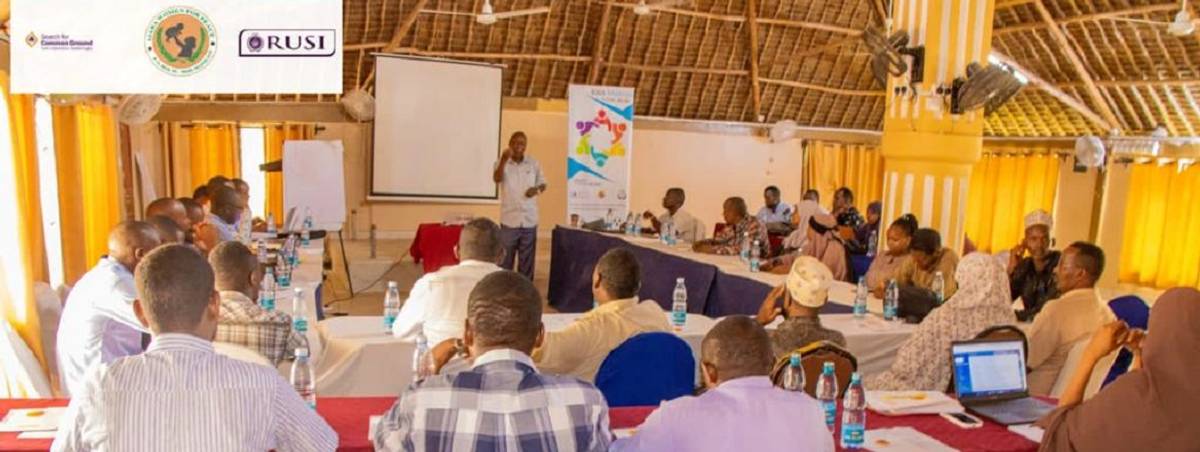Kwa Pamoja Tuzuie Balaa: Preventing Radicalisation and Terrorist Recruitment (PREACT)
This projects aimed to empower community leaders and relevant government counterparts to jointly address issues of violent extremist organisation radicalisation and recruitment in at-risk areas of Lamu and Garissa counties.
RUSI Nairobi partnered with Search for Common Ground, Ijara Women for Peace (IJWP), and the Kiunga Youth Bunge Initiative (KYBI), to implement a US Department of State-funded project named "Kwa Pamoja Tuzuie Balaa" under the Preventing Radicalisation and Terrorist Recruitment (PREACT) initiative. The project was implemented over 42 months, from October 2020 to March 2024.
As part of this project, RUSI led research on the locus of trust and reporting norms in target communities. The team also conducted regular monitoring and analysis of trends in the project areas to inform community-led multi-stakeholder dialogues on security issues. Select community forums were facilitated by RUSI and P/CVE capacity building training was provided for community members.
Project team
Timothy Kimaiyo
Threat Analyst | RUSI Consultant
RUSI Nairobi
Dennis Okemwa
Threat Analyst | RUSI Consultant
RUSI Nairobi
Joyce Kamau
Finance & Operations, RUSI Nairobi
Finance and Accounts
Christopher Hockey
Senior Research Fellow
RUSI Nairobi
Luniya Msuku
RUSI Associate Fellow, Terrorism and Conflict
Martine Zeuthen
RUSI Associate Fellow, Terrorism and Conflict
Galgallo Abagaro
Law Enforcement Project Manager
Aims and objectives
The project aimed to empower community leaders and relevant government counterparts to jointly reduce the risk of radicalisation and terrorist recruitment in at-risk areas of Lamu and Garissa Counties by improving collaboration and trust between these key stakeholders.
This aim was achieved by increasing the P/CVE skills of key community influencers, government, and law enforcement actors, as well as by providing opportunities for constructive interaction among and between these groups to discuss sensitive security issues and develop mutually agreed-upon strategies to address them.
The proximity and familiarity between community actors and at-risk individuals made them natural first-line responders in identifying indicators of VE behaviour and, as a community, most capable of devising locally-rooted responses to address this threat collectively.
This project improved trust and collaboration between key stakeholders, as well as raising awareness of the existing reporting channels, ultimately resulting in increased community reporting of VE activities to relevant authorities.
Outputs and achievements
Outputs
- National-level stakeholder engagement with key stakeholders, including the Kenyan government coordinating body, the National Counter Terrorism Centre.
- Nine quarterly violence monitoring reports.
- One research and validation session exploring barriers to reporting.
- Four community forums, each reaching 40 participants.
- Five town hall meetings (four intra-county, one inter-county).
Achievements
- Raised awareness about VE recruitment techniques and radicalisation processes, as well as existing reporting channels.
- Improved trust and collaboration between community members and relevant local government and security actors.
- Increased community reporting of VE activities to relevant authorities.
- Promoted diversity and inclusivity by engaging women, men, youth, persons living with disabilities, and individuals from different ethnicities, including both majority and minority groups.








